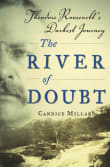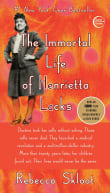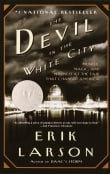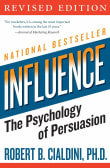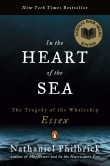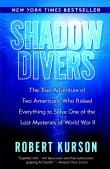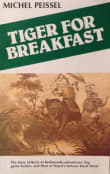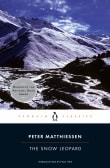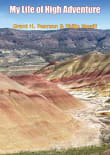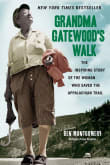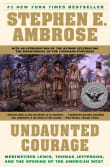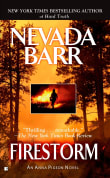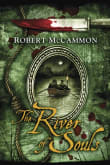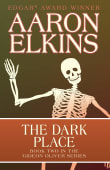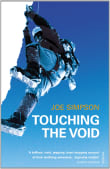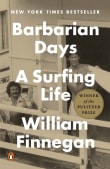Into Thin Air
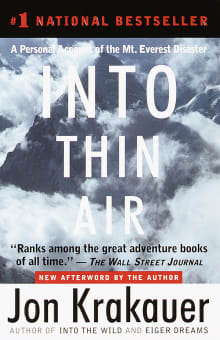
Book description
#1 NATIONAL BESTSELLER • The epic account of the storm on the summit of Mt. Everest that claimed five lives and left countless more—including Krakauer's—in guilt-ridden disarray.
"A harrowing tale of the perils of high-altitude climbing, a story of bad luck and worse judgment and of heartbreaking heroism." —PEOPLE
A…
Why read it?
17 authors picked Into Thin Air as one of their favorite books. Why do they recommend it?

This book takes the author on the ultimate high-altitude adventure, an attempt to summit the highest mountain on Earth.
It is a sobering account of the commercialization and false promises behind various mountaineering groups that pitch the summiting of the mountain to people rich enough to think they have the stamina to conquer it, but who really have no right being there in the first place.
Everest and the people who attempt to climb it have always intrigued me and this book was a stark reminder that it is a place to be revered and respected, or risk its wrath.
From Jim's list on the trials and joys of outdoor adventure.

Into Thin Air was the first book that I ever had a physical reaction to. I can still remember reading the book, and my jaw dropped as I read about Beck Weathers walking into camp after he was left to die.
No book has ever evoked such a physical reaction from me. I literally could not put this book down. I first read Into Thin Air over twenty years ago and have read it several more times since. Out of the hundreds of books I’ve read in my lifetime, this is one of the few that have stayed with me…
From Grace's list on appreciating common comforts.

I have always enjoyed reading a well-written subjective account of my fellow outdoor enthusiasts’ experiences during their chosen adventures. This book took it to another level.
While we all accept that the substantial rewards from our activities can carry substantial risks, we attempt to mitigate these risks whenever possible through experience and sound judgment. But sometimes Nature has her own agenda.
This heart-wrenching saga of a failed Everest expedition reinforced my motivation to prepare for the unexpected and served as a stark reminder that we have to be willing to pay the ultimate price for our rewards. But it also…
From Robert's list on peak and transformative human experience.
If you love Into Thin Air...

This is one of the best-known real-life survival stories out there.
The author accompanied an expedition up Mt. Everest, made it to the top, and then descended into the hell of nature at its most unforgiving. The book spawned at least three others with first-hand accounts of the event, but this one is the original, and I believe, the best.
Personally, I have climbed many mountains in all seasons, camped out in snowstorms, even trekked in Nepal and mingled with climbers on their way to another Himalayan peak. As a kid, I believed my future involved catching views from the…
From Dan's list on thrillers that just won’t stop.

I had always been a fan of Jon Krakauer’s writing for Outside magazine, even before I became a writer myself.
Most people are familiar with Krakauer’s work, but this book stands out as a beautifully written tribute not just to human endurance and spirit, but to man’s folly. It’s a story of how the conquest of Mt. Everest, once the ultimate goal of highly experienced mountaineers, became over-commercialized, with deadly consequences.
Poor decisions, bad luck, and hubris lead to tragedy in one of the world’s most unforgiving places. Not to be missed.
From Joshua's list on non-traditional stories about survival.

If your first is always your best, Jon Krakauer’s telling of a famously fatal, 1996 Mount Everest quest was my first immersion into the retelling of an event based on exhaustive reporting.
The story of this group of amateur ice climbers, led by professionals, is so gripping that I then had to read two other books based on the same 1996 calamity. All I can think of as I’m reading is: “How did he get this detail, that quote, so much background?” I looked for too little balance or too much underserved sympathy.
A newsroom co-worker of mine joined me…
From Mary's list on nonfiction with fantastic storytelling.
If you love Jon Krakauer...

A work of nonfiction, this is Krakauer's memoir of the then-worst tragedy to befall climbers on Mount Everest – a doomed 1996 summit bid that left five people dead and another irrevocably changed.
This is an intense and breathless journey to the peak, that leaves you simultaneously longing to go on this journey and see the sights described...and very happy to be home warm in bed and far from this miserable call to adventure.
This is the flagship mountaineering memoir for a reason!
From T.L.'s list on to read instead of going out in the elements.

Mountain climbing is not the typical American team sport such as baseball or basketball but it is definitely exciting … and dangerous.
Jon Krakauer is a skilled nature writer who can give his reader the feel of what it takes to climb a mountain (something I will never do).
Krakauer went to Mount Everest to report for Outside Magazine about the growing phenomenon of professional guides leading tours of the world’s highest mountain. Krakauer had planned to stop at the Everest base camp (about 17,000 feet). He decided, however, to train and go for the summit (29,000 feet) with one…
From Fred's list on picks by a kids’ sports book author.

Jon Krakauer lives to tell and write the tale of two misguided climbs up Mount Everest taking place the same weekend in May 1996. He’s there on a magazine assignment that morphs into a powerful book about bravery and also the hazards of hubris. Two world-class mountaineers (New Zealander Rob Hall and American Scott Fischer) take the risk of escorting commercial clients up Everest, some of whom have no business being there beyond the ability to pay about $60,000 apiece. Eight people perish in wicked weather, including Hall and Fischer. Seven others have to be rescued.
I recommend the paperback…
From Tom's list on narrative nonfiction on people dealing with mayhem.

This book might not make you a more effective persuader, but it provides a teeth-clenching case study about biases affecting decision-making when the stakes are at their highest. Why would anyone risk their life to summit Mount Everest? Reading this book suggests that overconfidence bias and the sunk cost effect are likely to blame.
From John's list on getting what you want without being evil.
If you love Into Thin Air...
Want books like Into Thin Air?
Our community of 12,000+ authors has personally recommended 100 books like Into Thin Air.



